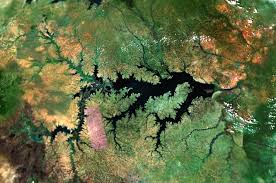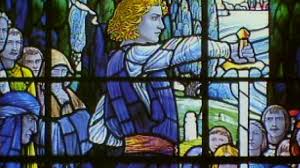
FIRST WORDS: Poetry is a basic way we perceive the world. We, humans, best understand what our senses report by comparing what is new to what we already know. That process of comparison, or matching or grouping things is not only the ordinary way humans process information, but also the way we learn and even create unusual, new kinds of insights. All art does these things whether in visual, musical, movement, other media—or combinations of them. In this way practicing "The Arts" allows us to push the boundaries of the ordinary ways we live, invent new solutions, and generally can keep ourselves interested in our world.
Poetry is really with us everywhere. It may be most obvious in song lyrics, religious texts and in many memorable sayings, thoughts or observations.
WHAT A POEM IS: " A poem should not mean/ But be.." MacLeish. The word "poem" derives from the Greek, poíēma, meaning something that is made, or a result of, or equivalent to something else. Poetry, including repeated sounds and rhythms, has been part of human expression for eons and is even basic to human development, which we can see when toddlers may call anything with four legs, a cat or dog, or whatever they learned to recognize as four-legged first.
 The use of comparison and relating one thing to another is at
the heart of poetry, and in these ways it is not unlike the sciences—or
even the equations of mathematics. Visual examples of how science and
mathematics do connect us to our surrounding are evident in
fractals which are objects or quantities displaying the same "type"
of structures on all scales from the infinitesimal to the infinite
levels of our universe.
The use of comparison and relating one thing to another is at
the heart of poetry, and in these ways it is not unlike the sciences—or
even the equations of mathematics. Visual examples of how science and
mathematics do connect us to our surrounding are evident in
fractals which are objects or quantities displaying the same "type"
of structures on all scales from the infinitesimal to the infinite
levels of our universe.
As writers we may not see the whole much like the parable of The Elephant and the Blind Men. and so settle for one part. Or, be like the person who lost a watch indoors but searched in the street because the light was better there.... Becoming aware of balance as the equalizing of contrasting forces like in Full Circle Form, will help identify the wholeness (or not...) and thereby, some basic qualities in the writing to "play" with....
- BASIC KINDS OF POEMS: In a very general sense virtually
all poetry can be seen as either dramatic, narrative or lyric in
character—or a mix of those. While all poems might be said to tell
or imply a story, there are clear elements of drama and
story/narrative that are evident in many forms and in traditional
epic poems—at least in their original versions. The Iliad, Beowulf,
The Divine Comedy, and many other extended works present characters,
plot, and other elements of story and dramatic form. Lyric poetry is
usually shorter
 in length, personal and very concentrated in its
energy and effect. Within these general categories, there are
countless patterns, forms and qualities that are reflective of their
era and culture. Performance and Folk-Art poems, Slams and spoken
rap w/music are some current versions that both recall the earliest
poetic expressions and find new ones.
in length, personal and very concentrated in its
energy and effect. Within these general categories, there are
countless patterns, forms and qualities that are reflective of their
era and culture. Performance and Folk-Art poems, Slams and spoken
rap w/music are some current versions that both recall the earliest
poetic expressions and find new ones.
JUST DO IT: The best way to gain confidence in writing poetry is to practice doing it. Reading and listening to the poems of other writers is important to help us recognize different styles and find our personal preferences. Becoming familiar with the ways poets in various cultures have used words, helps us to know the palette of possibilities we can use or adapt for our own expression. Echoing the work of other poets is educational and complimentary (but outright plagiarism is, of course, unethical). We will read, write and discuss poems, so some comfort with this process can be ongoing and rewarding for life.
Here are some of mine to share because, as Sharon Olds said, Dares go first...